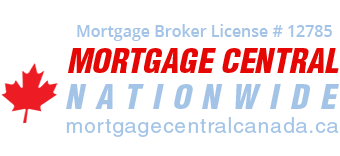Need a Home Equity Loan in Ontario? Here Is What You Need to Know for 2019
A home equity loan is a home loan that requires a piece of real estate to be used as collateral or security. This loan is provided as a mortgage on a piece of property. The amount someone can borrow from this type of loan is based on the equity of the property used as security. Because of this, a homeowner who needs a home equity loan should have a relatively significant amount of money paid on the property versus the debts taken on the property. Note that a home equity loan is not the same as a bank mortgage.
Home Equity Loans in Ontario
In Ontario, a typical home equity loan comes with an interest of 7% to 15% as a one-year open first mortgage or second mortgage. Most of the time, an option to end the mortgage early is part of the terms. In such cases, the borrower will only have to pay a penalty fee equivalent to three-month interest. In this regard, home equity loans are much more forgiving than traditional mortgages from banks and can also be made in such way that will fit the borrower’s specific situation. The terms can be drawn up between the borrower and the lender with the help of Canadian mortgage professionals.
What is the Limit for a Home Equity Loan
The amount of existing debts on the property and the current value of the property in question are major factors in determining how much a homeowner can borrow as a home equity loan. Lenders will also calculate the LTV or Loan to Value ratio and adjust what they can lend accordingly. Some lenders may also consider employment history, source of income, and credit score as additional metrics.
Using a Home Equity Loan in 2019
The common uses for home equity loans remain the same. Most people either use their home equity loan to fund a home renovation or to pay expensive debts (debt consolidation). Some use their home equity loan as capital for a new business and some use it to pay for higher education.
Please know that the best uses for home equity loans are expenditures that give value back to you. If you can, refrain from using it to buy luxury bags, gadgets that you don’t really need, or spend it in gambling.
Is a Home Equity Loan the Same as a HELOC?
Although a home equity line of credit may sound almost the same as a home equity loan, they are different types of loans. A HELOC allows you to use up to a predetermined amount in a revolving manner whereas a home equity loan is given to you as a lump sum with a fixed interest rate and payment. If you need to know more, you can talk to us at Mortgage Central Canada so we can discuss which may be better for you.
Are you thinking of applying for a home equity loan in Ontario and nearby areas? Contact us and we’ll try to make the process as easy as possible for you!



